From Watershed Development to Ecosystem-based Adaptation
A journey to systemic resilience
by Devaraj de Condappa and Stephen Roche | 2021-04-01
In recent decades, India has suffered greater economic losses and human fatalities due to extreme weather events — such as droughts, storms or flooding — than any other country. Millions of people are regularly displaced due to extreme weather. Many Indians acutely understand the urgency of adapting to climate change, particularly in agriculture, as at least half of the country’s population depends on this sector for its livelihood.
Kishan Kashinath Kondar is an Indian farmer who has managed to minimise the detrimental impacts of extreme weather by practising sustainable farming. That has involved using indigenous seeds and organic pesticides and fertilisers to cultivate more than a dozen varieties of crops across three seasons. Moreover, he has planted a wide range of fruit trees, and also rears livestock. This diversification and reliance on resilient crops have allowed him to consolidate his income and adapt to a changing climate.
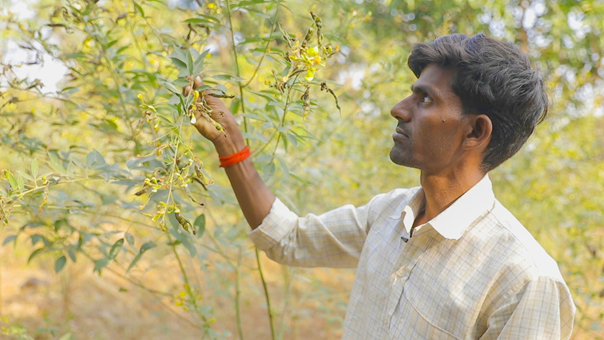
Kishan Kashinath Kondar, on his farm in Purushwadi, Ahmednagar district, Maharashtra.
Kishan Kashinath Kondar, on his farm in Purushwadi, Ahmednagar district, Maharashtra.
Kishan has taken part in watershed development and climate change adaptation programmes implemented by an NGO, the Watershed Organisation Trust (WOTR), since the mid-1990s. Recognising that healthy ecosystems help people cope with climate change, WOTR applies Ecosystem-based Adaptation (EbA) to build communities’ resilience while protecting and restoring ecosystems.
TMG Research, a Berlin-based think-tank, collaborated with WOTR to assess the outcomes of its projects. Two case studies were examined: Purushwadi and Bhojdari villages, both located in Ahmednagar district, Maharashtra.
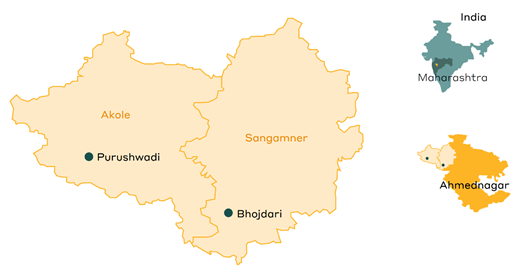
Location of the two case studies, Bhojdari and Purushwadi.
The resulting report, entitled “From Watershed Development to Ecosystem-based Adaptation”, shows how EbA can help build systemic resilience in ecosystems and communities.
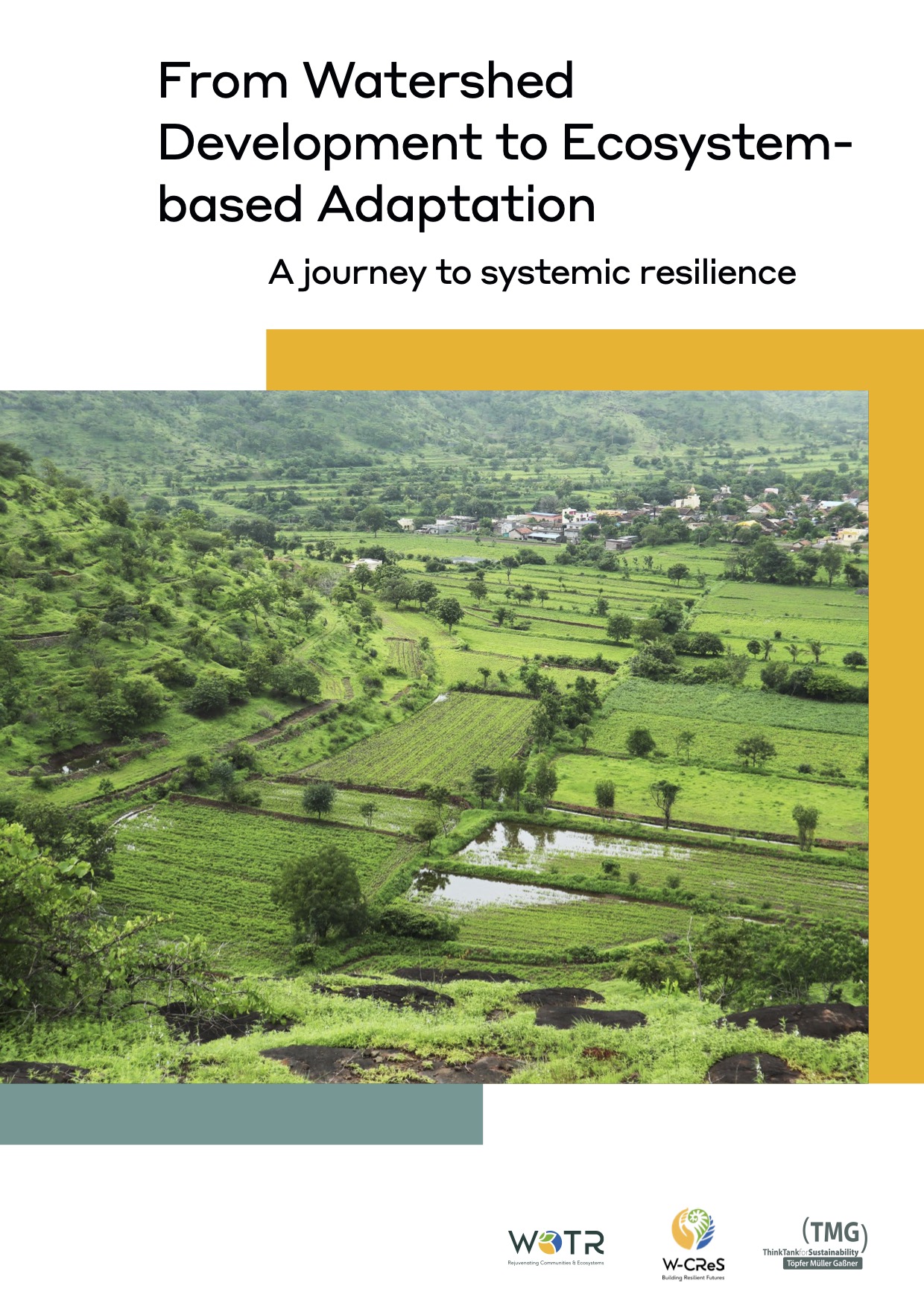
The report considered three core elements of EbA: the adaptive capacities of communities, ecosystem services and biodiversity, and participatory governance. Positive outcomes were found for all three elements and the benefits for villagers were truly multi-dimensional. Farmers’ adaptive capacity improved thanks to more sustainable agricultural methods based on multi-layered farming with a mix of crop varieties, and the System of Crop Intensification. This is an agricultural practice which involves four successive steps: soil preparation and management, ample and regular crop spacing, application of locally prepared organic inputs, and micro-nutrient foliar spraying.
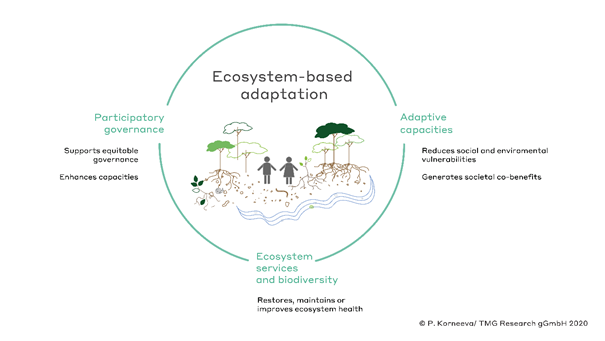
The three elements that constitute Ecosystem-based Adaptation.
The reintroduction of indigenous crops played a crucial role during the drought of 2018, when indigenous pearl millet was the only rain-fed crop that thrived. Moreover, the diversification of economic activity with ecotourism helped to boost farmers’ incomes. Food security and nutrition also improved, both from the switch to indigenous crops like Varai and the widespread adoption of kitchen gardens.
Alongside its economic and nutritional benefits, EbA strengthened participatory governance in both villages. Village committees were created to manage soil and water conservation infrastructure. A People’s Biodiversity Register was set up to record local knowledge of biological resources and pass this on to the younger generation. WOTR also promoted community management of water resources through the Water Stewardship Initiative and helped the villages strengthen their collaboration with government departments.
Since WOTR began its work in the two villages studied, local ecosystems and biodiversity have measurably improved. There is now greater agro-biodiversity thanks to the reintroduction of indigenous crops and the rearing of backyard indigenous poultry. Finally, large-scale soil and water conservation efforts have increased vegetation on degraded lands and boosted agricultural production due to better soil quality and moisture retention.
These results demonstrate the potential of EbA to help Maharashtra implement its action plans on climate change, biodiversity, and land degradation. A roadmap is currently being drafted through a multi-stakeholder consultation process to scale-up the adoption of EbA in Maharashtra.
Key messages for scaling up EbA in Maharashtra
EbA strengthens community resilience while preserving ecosystems.
EbA increases the resilience of agricultural systems to climate change while strengthening food and nutrition security.
EbA must be economically viable; it is therefore imperative to strengthen the income of rural communities and ensure ecosystem-based livelihoods.
EbA can deliver cultural and health benefits since well-being depends on healthy ecosystems.
EbA builds stronger communities, fosters local democratic processes, and pools different types of knowledge.
EbA requires strong collaboration between communities, civil society, the private sector, government and funding agencies.
Globally, the COVID-19 crisis has shown that human encroachment into fragile ecosystems can cause the emergence of zoonotic diseases. In India, moreover, the crisis has caused massive remigration from urban to rural areas. In these two respects, the pandemic has shown that we need to manage ecosystems wisely and strengthen rural livelihoods, as was achieved in the case study villages for farmers like Kishan. Meanwhile, the climate crisis has not gone away. The roadmap to upscale EbA offers a practical opportunity to build back better — for more sustainable and resilient communities and ecosystems.
About the project
For more information about our work on Ecosystem-based Adaptation visit our project websites: www.tmg-thinktank.com/eba and https://wotr.org/eba/
To engage in our discussions on Ecosystem-based Adaptation, follow us on Twitter: https://twitter.com/TMG_think
The “Climate-SDG Integration Project — Supporting the implementation of the Paris Agreement and the 2030 Agenda through Ecosystem-based Adaptation” is part of the International Climate Initiative and financed by the German Federal Ministry for the Environment, Nature Conservation and Nuclear Safety (BMU).
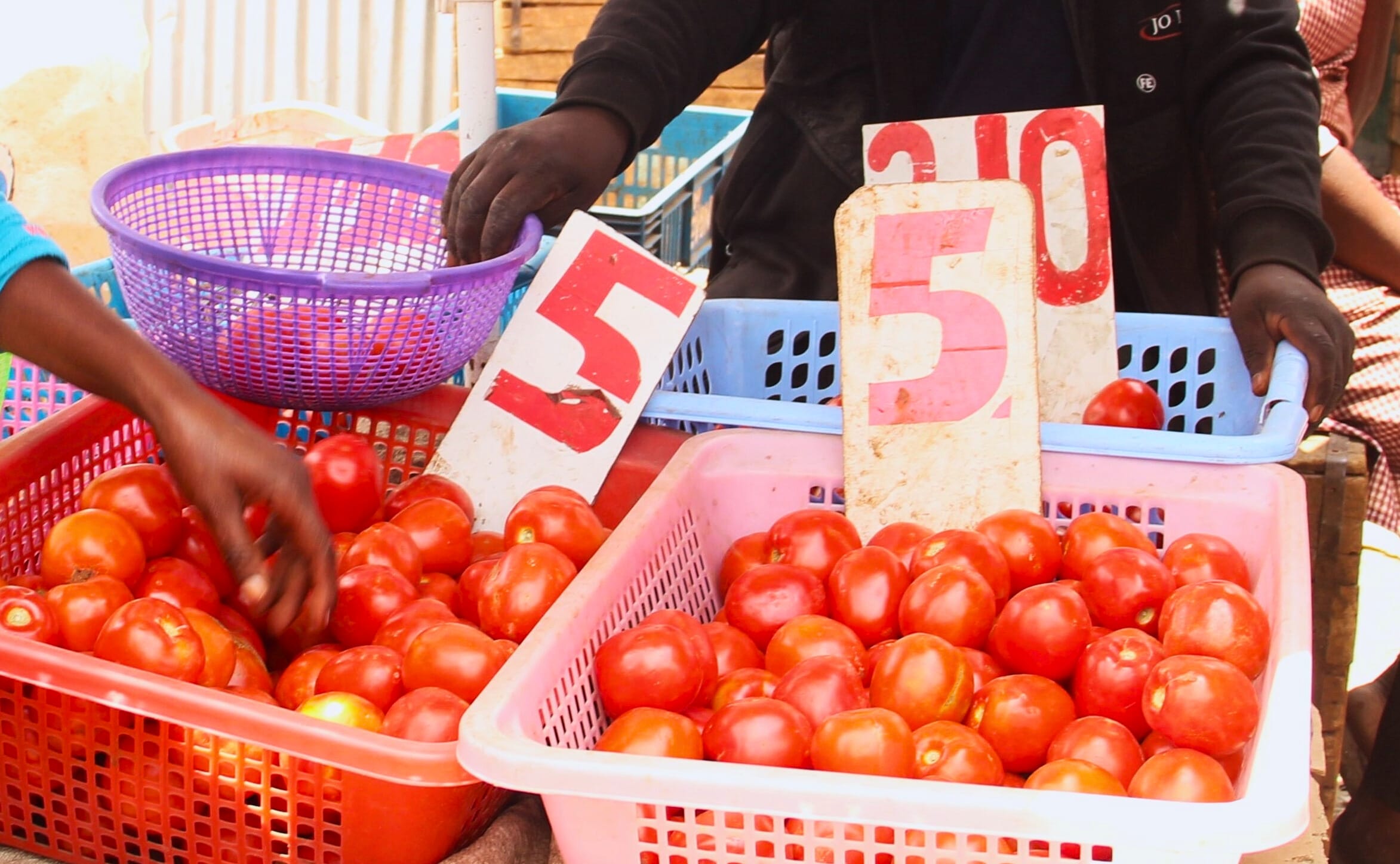 Urban Food FuturesSep 29, 2025
Urban Food FuturesSep 29, 2025Cheaper food, higher costs: The paradox of Nairobi’s food systems
What are the hidden costs of foods sold in Nairobi's informal markets, and who must bear them? We discuss how the city could build food systems that are both affordable and fair—for consumers and the people who feed them.
Christian Sonntag, Emmanuel Atamba, Lumi Youm
 Land GovernanceJun 26, 2025
Land GovernanceJun 26, 2025Did 2024 - the year of the triple COP - change anything for land rights?
What did this “triple COP” moment really deliver for land rights? Can we keep the momentum up to advance gains made and push for bolder action?
Frederike Klümper
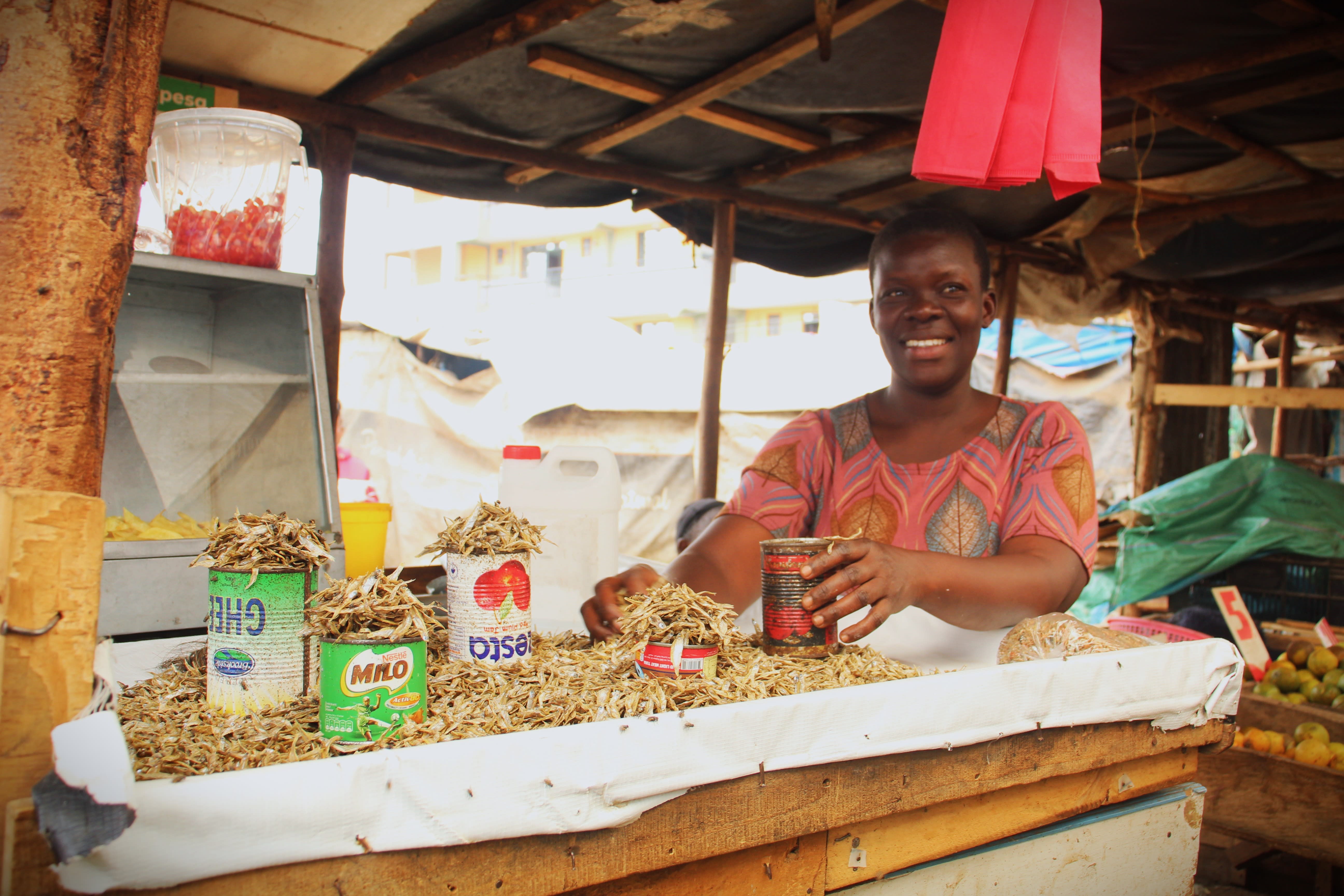 Urban Food FuturesJun 20, 2025
Urban Food FuturesJun 20, 2025Working with informality: A hidden path to Zero Hunger
Global progress on Zero Hunger is faltering, but a powerful, overlooked solution exists: working with informality. Supporting the networks already feeding cities and sustaining communities can drive progress not only on hunger, but across multiple SDGs.
Jes Weigelt
Written by Devaraj de Condappa and Stephen Roche

